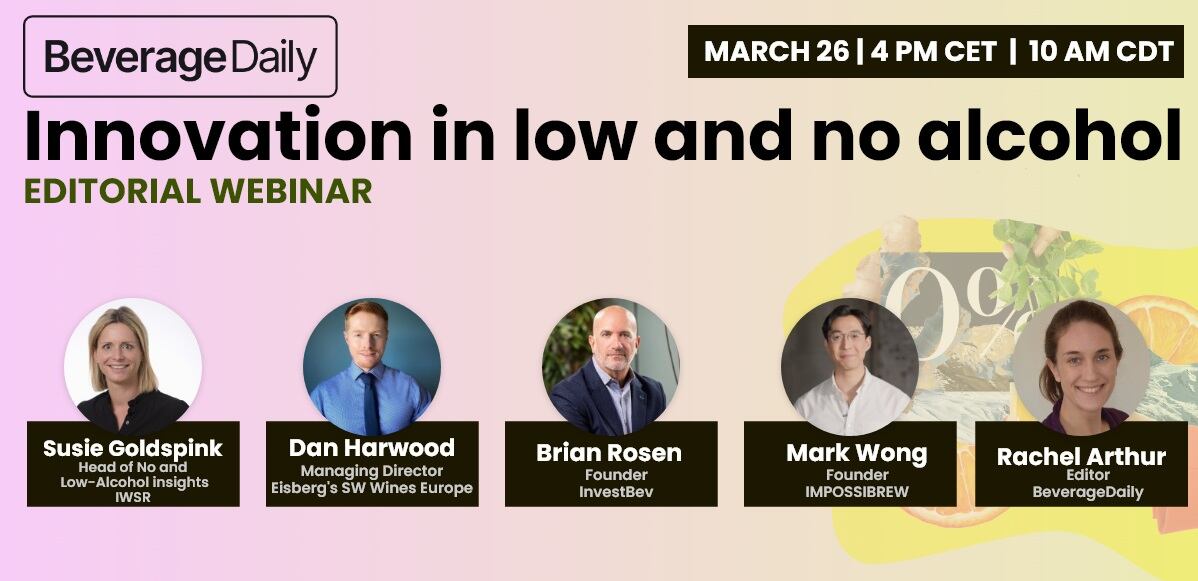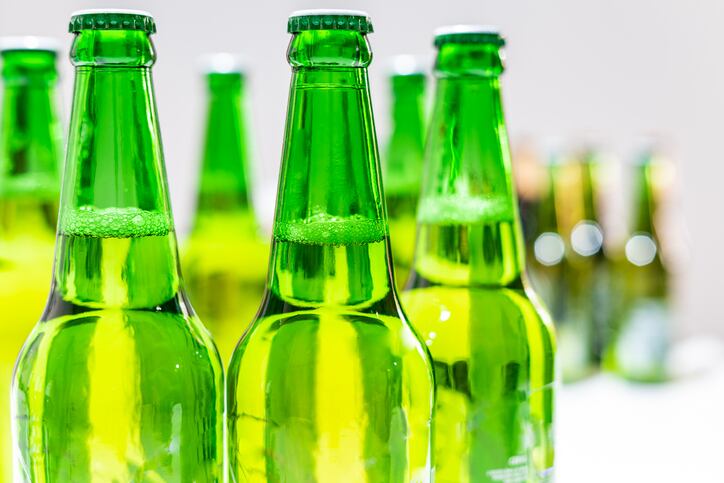The global low and no alcohol market is expected to grow by 4% volume CAGR through 2028: much more attractive to 1% growth in alcohol volumes.
Smaller, independent brands might have been the first to explore the category and champion its potential: but now, bigger brands have leaped in. That’s seen across alcohol-free beer and spirits: think Heineken 0.0, Carlsberg 0.0, Guinness 0.0, Budweiser Zero, Gordons 0.0, Tanqueray 0.0, and many more.
But smaller, independent brands continue to innovate: particularly when it comes to exploring functional ingredients and new ideas.
At the moment, the question is not about pitting big brands against small brands: all momentum for the category is good news, says Susie Goldspink, head of low and no at IWSR.
“I speak to a lot of brands, lots of them really small independent brands and lots of the big players as well. As we’re at such an early stage in the development of this no-low world that everyone is seeing the involvement of the big brands as being a really positive thing,” she said, speaking at BeverageDaily’s webinar on Innovation in Low and No Alcohol (you can still listen on-demand for FREE).
“The small independent people that I speak to, they see these big brands as a way to gain category awareness,” she continued.
“These [big] brands are investing in huge sports events, sponsorship deals and increasing the acceptance of no alcohol generally. It’s growing the pie, rather than worrying about who’s getting what share of the pie. It’s seen as really positive momentum around the category.”

That’s a view backed up by small independent brand, Impossibrew, a functional alcohol-free brew that launched in the UK in 2019.
Founder Mark Wong could be expected to regret the increasing presence of big brands in the category. In Impossibrew’s early days, he was turned down by investors on Dragon’s Den (Shark Tank) because the Dragons were concerned that there was too much competition from bigger brands such as BrewDog.
But today, Impossibrew’s success (alongside that of other players) has proved them wrong.
The presence of big brands in the category just serves as an illustration of a ‘rising tide’ for the segment, said Wong. And, furthermore, they’re building the credibility of the category on mass. If a big brewer can make a decent alcoholic brew, consumers have faith they can make a decent alcohol-free version.
“These big brands are eliminating some of those questions about whether the category is worth entering in the first place – there are consumers thinking, should I even try a non-alcoholic drink?" he said. “These big brands have really made the idea of an alcohol-free drink a normal thing.”
And Wong gives credit where credit is due.
“Some of the very early innovations in low and no gave the category a reputation that wasn’t the best,” he said. “Now some of the big brands have turned that around.”
With the question of the validity of the alcohol-free category out of the way, the brand can now concentrate on proving its product and brand.
“We can then go to consumers’ next question and ask, OK, which product is better and which brand would I like to stick with? And we’d much rather have that discussion rather than the initial one of – should I even try the category?” explained Wong.
This idea of founding and building a good brand is what’s important to Brian Rosen, founder of InvestBev. And it’s where he sees the alcohol-free category going in the future.
That’s because – however fast or successful alcohol-free versions from big brands are – these big names are still very much associated with the flagship alcohol version. Smaller, entrepreneurial brands, in contrast, can have their own specialized identity solely focused around alcohol-free.
“I love the little brands”, he said. “I think that if someone is going for a better-for-you or non-alc option, they’re going to want to pick a small, crafted, unique experience.
“If consumers are going the non-alc route, they really want it to be a source of pride. They want to have a sense of discovery – and you can’t really ‘discover’ a mainstream beer brand.
“So I’m much more an advocate towards non-alc options that are unique, differentiated, and crafted for this moment in time.”

